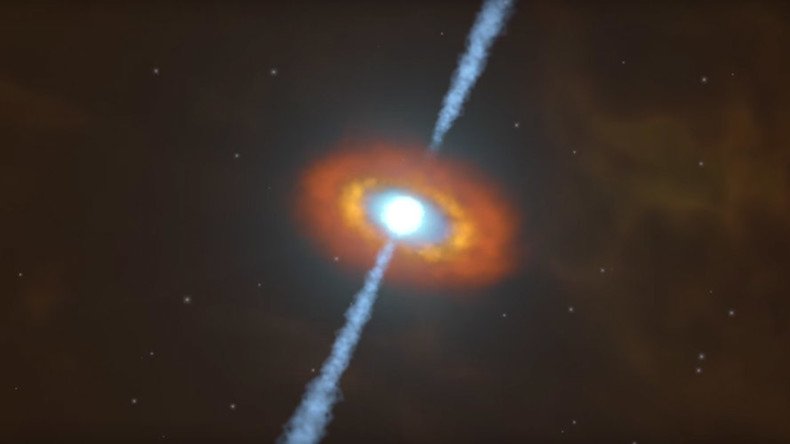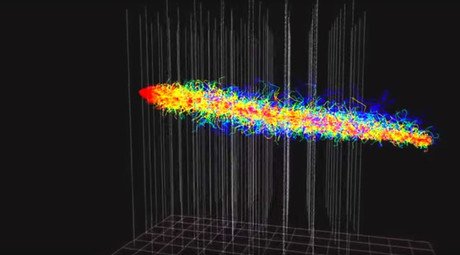Powerful neutrino that slammed into Antarctica may be from galaxy 9 billion light years away

Tiny particles that struck Antarctica years ago came from outside our galaxy, puzzling scientists hoping to unlock clues about the universe. Now, scientists think the source might be the center of a bright, violent galaxy some 9 billion light years away.
Back in August 2015, researchers at the IceCube Neutrino Observatory confirmed that neutrinos – massless, high-energy particles smaller than atoms that easily pass through matter, including humans – had struck parts of Antarctica’s ice between 2010 and 2012. Although the researchers from the University of Wisconsin-Madison did not directly observe the neutrinos, they were able to detect what they called “the fleeting bursts of light created when the occasional neutrino crashes into another particle.”
The discovery of 21 of these bursts of light confirmed to scientists that some of the neutrinos striking the Antarctic came from beyond our galaxy, since the results suggested they traveled through space without passing through or being impeded by stars, planets or other matter. Since they are so pristine, scientists believe they could hold valuable information about the parts of the universe that they come from.
With researchers confident that the neutrinos came from somewhere far, far away, the next thing they had to do was figure out where.
According to the website Science News, researchers were able to hone in on a particular neutrino, called “Big Bird,” that hit Antarctica on December 4, 2012, with the equivalent of 2 billion electron volts. After it struck, researchers used the Tracking Active Galactic Nuclei with Austral Milliarcsecond Interferometry (TANAMI) telescopes to scour the skies for potential sources, keeping in mind the direction at which the neutrino traveled.
Ultimately, they discovered “a major outburst” of a blazar 9 billion light years away that occurred “in temporal and positional coincidence” with the neutrino strike, according to a recent report from an international team of researchers that can now be viewed online. A blazar is a type of galaxy marked by quick, unpredictable changes in brightness. They can be extremely active and their violent activity results in the emission of radiation as well as neutrinos, the byproduct of nuclear fusion.
Since the outburst from this particular blazar – called PKS B1424−418 – spanned multiple months, they believe it’s probable that the Big Bird neutrino originated from here. They said the chance that the two events occurred separately was just 5 percent, however they could not definitively state the blazar was the source.
“It’s a very intriguing result, but it’s not a proof,” said IceCube leader Francis Halzen of the University of Wisconsin–Madison to Science News.
More research is needed to confirm the sources of the neutrinos that are hitting Antarctica. The National Science Foundation just recently announced a five-year, $35 million grant to keep the IceCube facility running.













